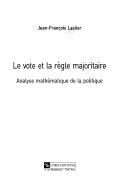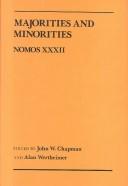| Listing 1 - 10 of 962 | << page >> |
Sort by
|
Book
Year: 1971 Publisher: Paris : Colin,
Abstract | Keywords | Export | Availability | Bookmark
 Loading...
Loading...Choose an application
- Reference Manager
- EndNote
- RefWorks (Direct export to RefWorks)
Book
Year: 1971 Publisher: Paris : Colin,
Abstract | Keywords | Export | Availability | Bookmark
 Loading...
Loading...Choose an application
- Reference Manager
- EndNote
- RefWorks (Direct export to RefWorks)
Dissertation
Year: 1965 Publisher: Göteborg, Sweden : Akademiförlaget,
Abstract | Keywords | Export | Availability | Bookmark
 Loading...
Loading...Choose an application
- Reference Manager
- EndNote
- RefWorks (Direct export to RefWorks)
Book
ISBN: 0472125923 Year: 2019 Publisher: Ann Arbor, Michigan : University of Michigan Press,
Abstract | Keywords | Export | Availability | Bookmark
 Loading...
Loading...Choose an application
- Reference Manager
- EndNote
- RefWorks (Direct export to RefWorks)
The idea of democracy is under enormous challenge in the recent years, especially since the election of many populist politicians who run a platform of pleasing electoral winners at the expense of the losers. This book argues that majority rule itself is not to blame, but the institutional features that stabilize majorities are responsible. Despite the popular idea that social choice instability (or "cycling") makes it impossible for majorities to make optimal decisions, Yuhui Li argues that the best part of democracy is not the large number of people on the winning side, but that the winners can be easily divided and realigned with losers in the cycling process. He shows that minorities' bargaining power depends on their ability to exploit the division within the winning coalition and induce its members to defect, an institutionalized uncertainty that is missing in one-party authoritarian systems. The reason that certain democracies lost their institutional advantage to non-democracies is often that their institutions make it too hard for the winning coalition to divide and break down. Using simple reasoning with the help of experimental and observational data, Dividing the Rulers theorizes and simulates why such division within the majority is important and what kind of institutional features can help a democratic system maintain such division, which is crucial in preventing an undefeatable winning coalition and the "tyranny of the majority" that may come with it. These institutional solutions point to a direction of institutional reform that not only academics, but also politicians and voters should collectively pursue.

ISBN: 9782271062659 2271062659 Year: 2004 Publisher: Paris: CNRS,
Abstract | Keywords | Export | Availability | Bookmark
 Loading...
Loading...Choose an application
- Reference Manager
- EndNote
- RefWorks (Direct export to RefWorks)
Book
Year: 1971 Publisher: Paris : A. Colin,
Abstract | Keywords | Export | Availability | Bookmark
 Loading...
Loading...Choose an application
- Reference Manager
- EndNote
- RefWorks (Direct export to RefWorks)
Book
ISBN: 9780691155654 0691155658 0691176396 1283864126 140084553X Year: 2013 Publisher: Princeton, N.J. : Princeton University Press,
Abstract | Keywords | Export | Availability | Bookmark
 Loading...
Loading...Choose an application
- Reference Manager
- EndNote
- RefWorks (Direct export to RefWorks)
Individual decision making can often be wrong due to misinformation, impulses, or biases. Collective decision making, on the other hand, can be surprisingly accurate. In Democratic Reason, Hélène Landemore demonstrates that the very factors behind the superiority of collective decision making add up to a strong case for democracy. She shows that the processes and procedures of democratic decision making form a cognitive system that ensures that decisions taken by the many are more likely to be right than decisions taken by the few. Democracy as a form of government is therefore valuable not only because it is legitimate and just, but also because it is smart. Landemore considers how the argument plays out with respect to two main mechanisms of democratic politics: inclusive deliberation and majority rule. In deliberative settings, the truth-tracking properties of deliberation are enhanced more by inclusiveness than by individual competence. Landemore explores this idea in the contexts of representative democracy and the selection of representatives. She also discusses several models for the "wisdom of crowds" channeled by majority rule, examining the trade-offs between inclusiveness and individual competence in voting. When inclusive deliberation and majority rule are combined, they beat less inclusive methods, in which one person or a small group decide. Democratic Reason thus establishes the superiority of democracy as a way of making decisions for the common good.
Democracy --- Majorities --- Philosophy --- Democracy - Philosophy --- Democracy. --- Majorities. --- Philosophy.
Multi
ISBN: 9781400845538 9780691155654 0691155658 Year: 2013 Publisher: Princeton (N.J.): Princeton university press,
Abstract | Keywords | Export | Availability | Bookmark
 Loading...
Loading...Choose an application
- Reference Manager
- EndNote
- RefWorks (Direct export to RefWorks)
Political sociology --- Politics --- Democracy --- Majorities

ISBN: 0814714331 9780814714331 0814790151 Year: 1990 Volume: 32 Publisher: New York (N.Y.): New York University press,
Abstract | Keywords | Export | Availability | Bookmark
 Loading...
Loading...Choose an application
- Reference Manager
- EndNote
- RefWorks (Direct export to RefWorks)
Majorities. --- Minorities. --- Political philosophy. Social philosophy
Book
Year: 1978 Publisher: [Lieu de publication inconnu]: COP,
Abstract | Keywords | Export | Availability | Bookmark
 Loading...
Loading...Choose an application
- Reference Manager
- EndNote
- RefWorks (Direct export to RefWorks)
Mass society --- Majorities --- Conformity --- Political socialization --- Socialism
| Listing 1 - 10 of 962 | << page >> |
Sort by
|

 Search
Search Feedback
Feedback About UniCat
About UniCat  Help
Help News
News